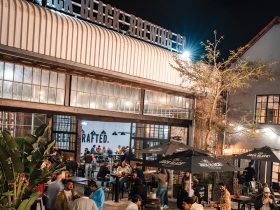Trending Now
BASA Equips Small Brewers to Tap into Big Business






Webinar connects SMMEs with practical tools for growth and compliance
The Beer Association of South Africa (BASA) is helping small businesses tap into the opportunities within the beer industry through its recent Brewing Business Success webinar, which connected over 50 participants with experts in compliance, digital marketing, retail, and skills development.
“There’s a huge appetite among entrepreneurs to grow in the beer industry – but access to the right knowledge and networks remains a barrier,” said BASA CEO Charlene Louw. “This platform is part of our commitment to support small brewers with practical information and real opportunities.”
BASA represents both large and small stakeholders in the beer value chain, including around 200 SMMEs via its affiliate, the Craft Brewers Association of South Africa.
Demystifying Liquor Licensing
Mbongeni Shabangu, Director of Law Enforcement and Compliance at the Gauteng Liquor Board (GLB), explained the licensing process, stressing that regulation is not there to exclude businesses, but to ensure public health and legal compliance. He broke down key requirements: municipal consent, public notice, SAPS clearance, and more.
He also flagged common pitfalls that lead to failed applications – incomplete documents, public objections, or misrepresentation – and highlighted the GLB’s new online application platform, now in early rollout.
Cleo Bodibe-Lushaba, Director of Client Relations at GLB, shared the liquor sector’s economic value: over 30,000 licensed outlets in Gauteng contribute more than R1 billion in tax revenue and support over a million jobs – with 55% of traders being women.
However, she warned of the social cost: over R20 million is spent annually on alcohol-related illness, and most road fatalities are linked to abuse. Since the pandemic, illicit alcohol use has surged. “49% of people know someone harmed by illegal alcohol, and 29% know someone who died from it. We’re losing R16.5 billion a year – money that should be funding public services,” she said.
Scaling Up Through Retail and Marketing
Thato Ntsukunyane, Supplier Development Manager at Makro Marketplace, introduced the benefits of the online retail platform, which drew 90 million visits last year. SMMEs can list products, set their own prices, and eventually access in-store opportunities.
“Our focus is to incubate local brands and help them grow,” he said, noting a rise in demand for craft beer. He cited success stories, including one brewer who grew turnover to R900,000 after completing a Makro-sponsored training programme.
Makro’s “Shop Local” campaign also offers affordable promotion for small brands looking to build visibility.
Mathapelo Montsho, Digital Brand Specialist, encouraged entrepreneurs to “show up where your customers are – online.” She shared tips for making the most of platforms like WhatsApp, Facebook, and Instagram: use quality images, tell stories, show real people enjoying your product, and post consistently – ideally two to three times a week.
Free tools like Canva (design), CapCut (video editing), and Meta Business Suite (post scheduling) help stretch marketing budgets, she added.
Training for a Stronger Future
Makatseng Mokome, Senior Manager at FoodBev Manufacturing SETA, outlined how the SETA supports SMMEs through both mandatory and discretionary grants, even for non-levy-paying businesses. Upcoming workshops, including one tailored for SMMEs, will focus on skills development and compliance support.
BASA’s Brewing Business Success seminar is part of its broader effort to ensure that emerging brewers are not left behind in an industry with enormous potential for inclusive growth.
“With the right support, small brewers can create jobs, uplift communities, and build sustainable businesses,” said Louw. “Our goal is to make that possible.”





